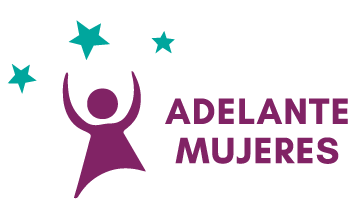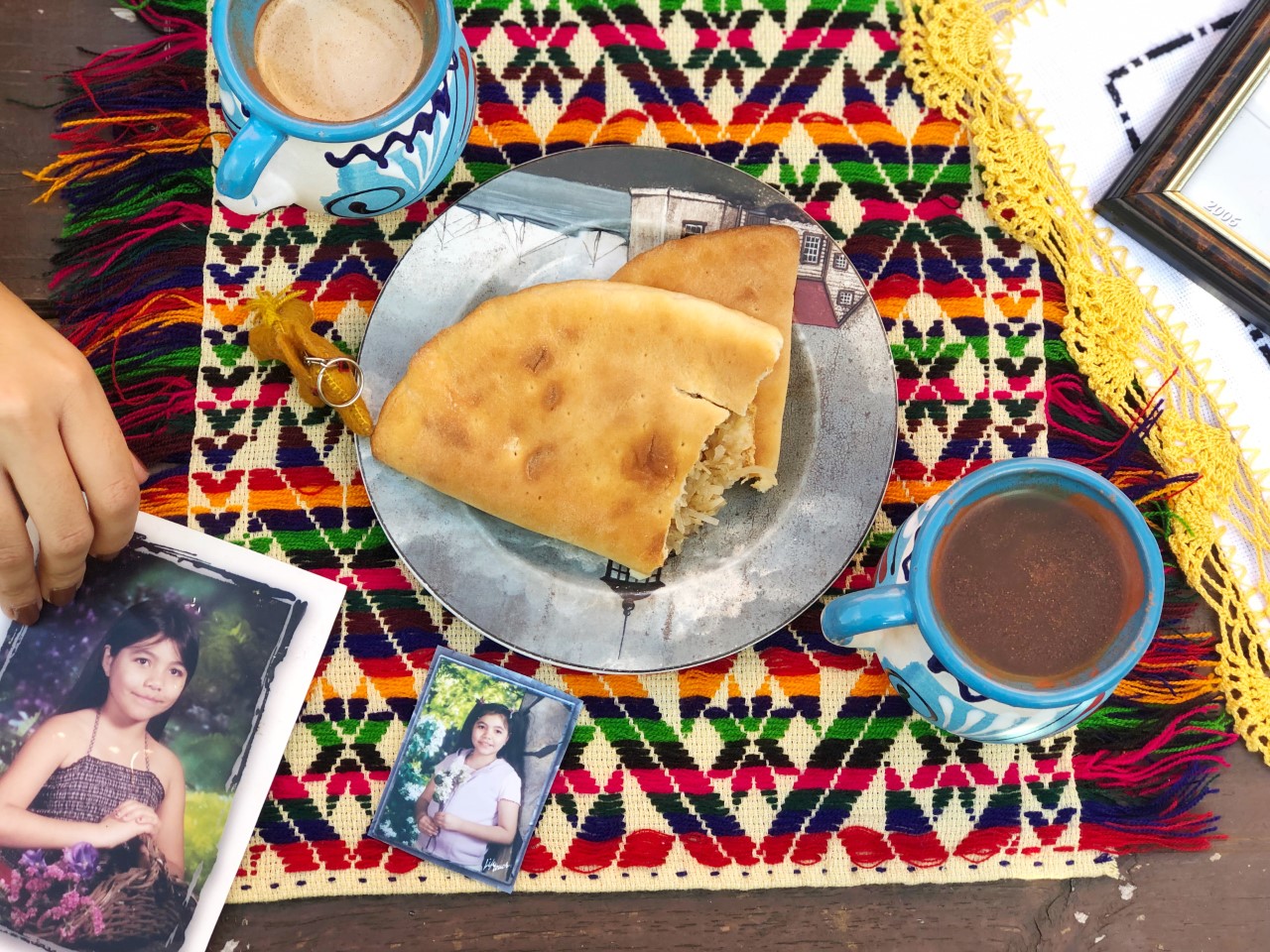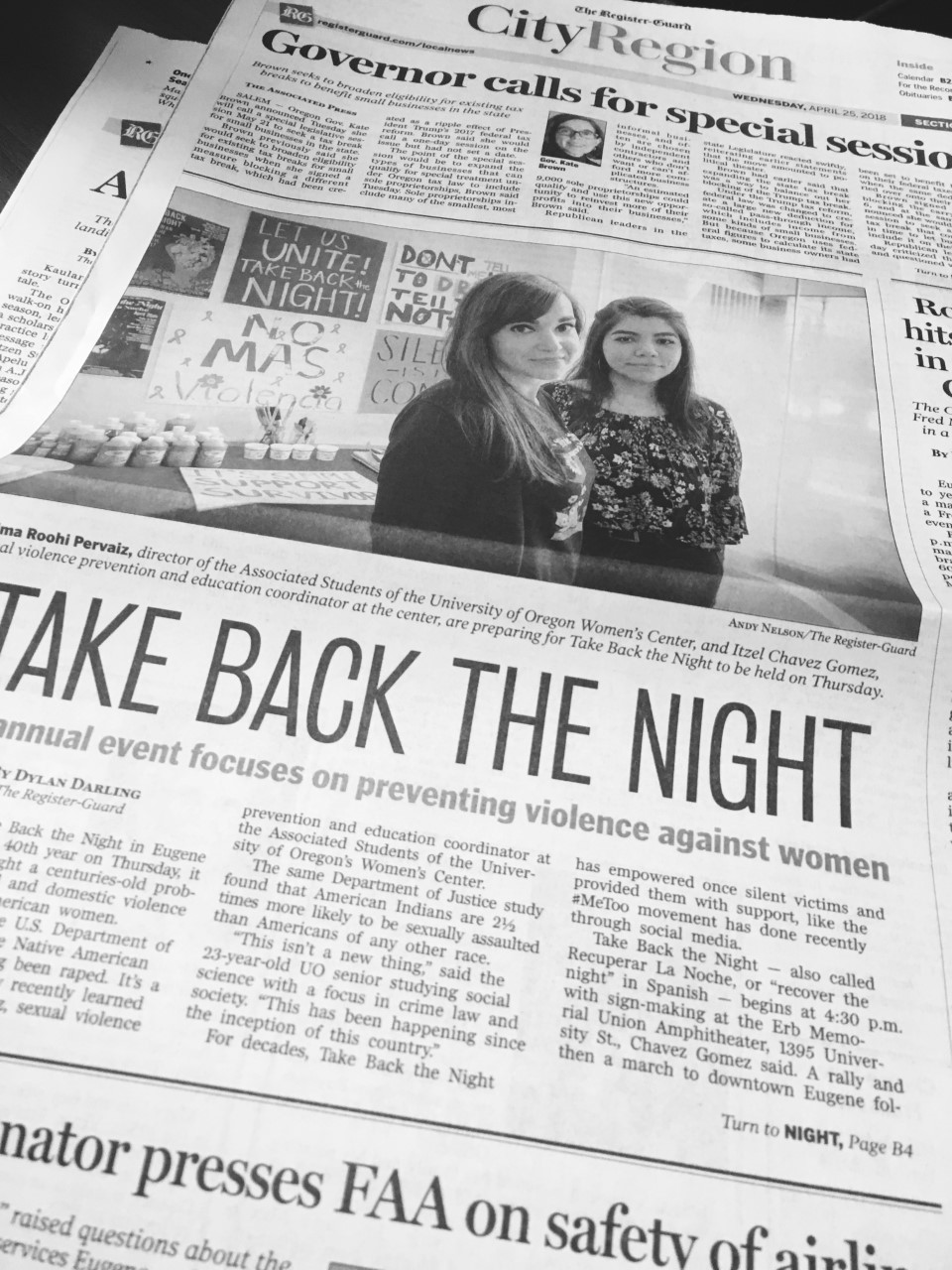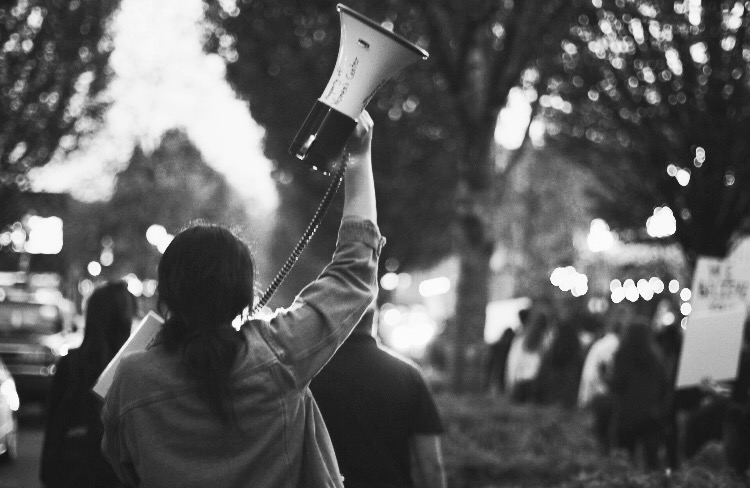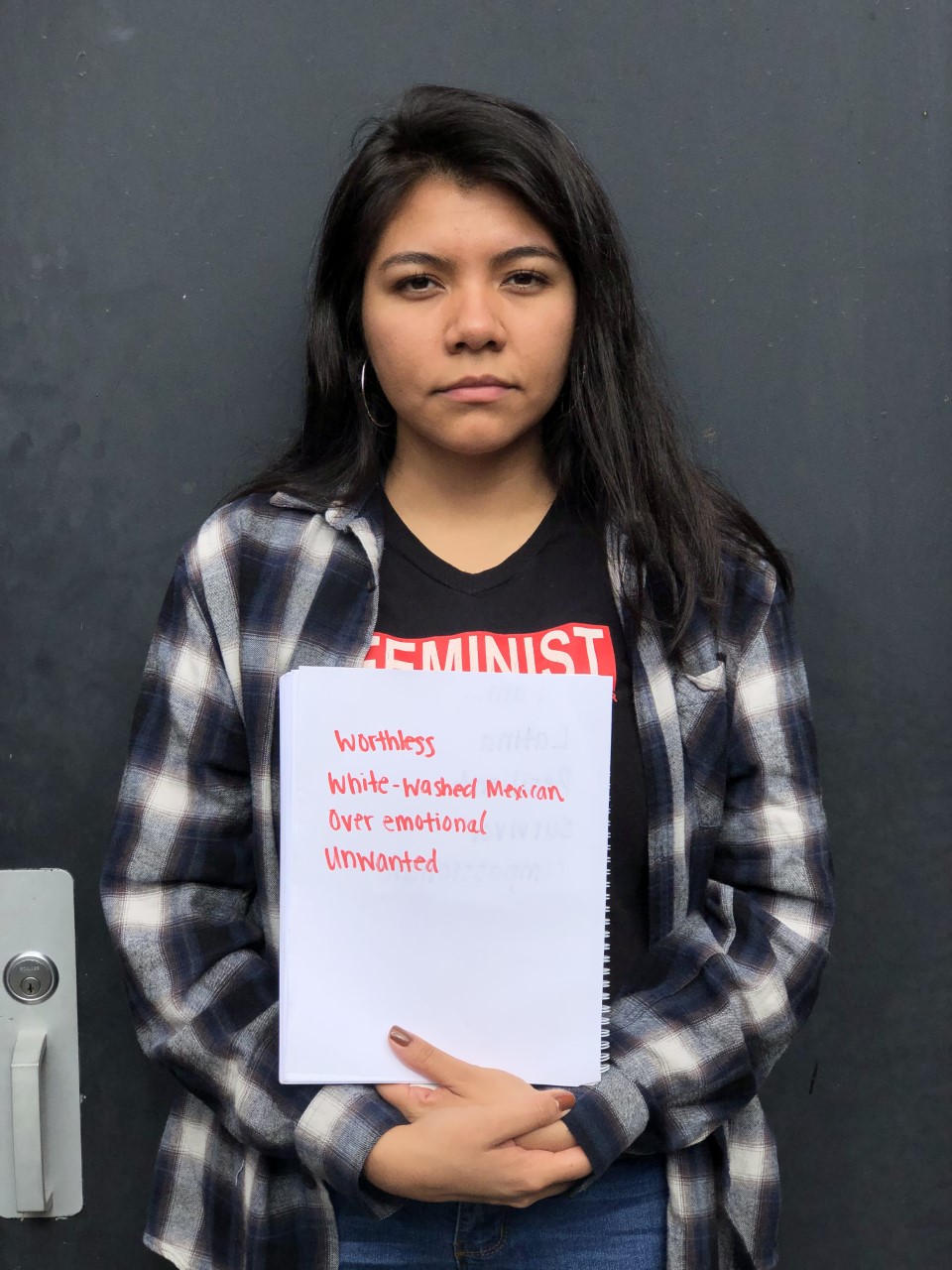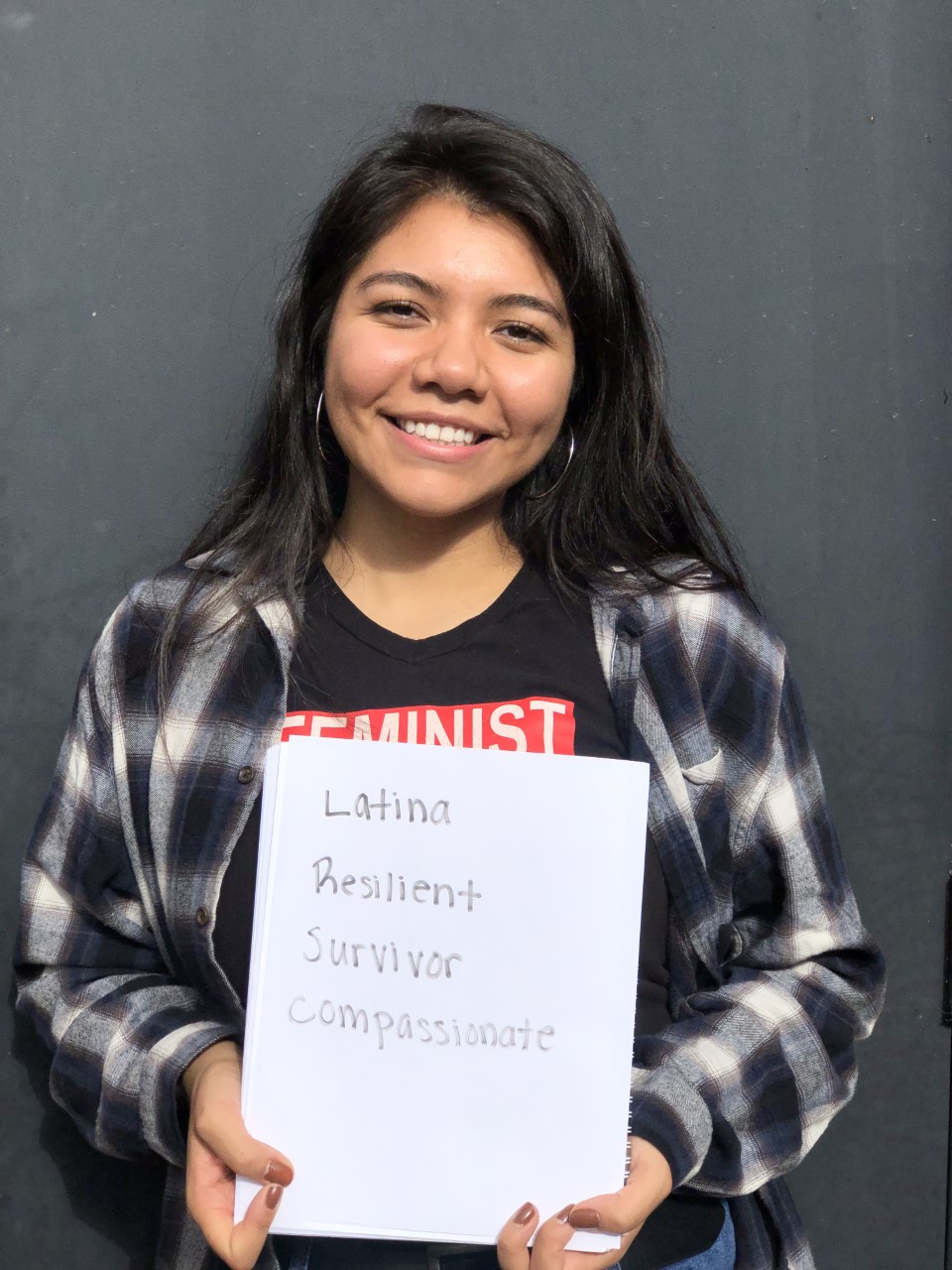Cafecito Con Carmen: A Story of a Girl Named, Itzel
Her name is Itzel Chavez GOMEZ.
She began this morning like any other morning, sleepy-eyed from dreaming about changing the world. She woke up and began her day with the most essential of things: cafécito. Routine, rituals. Wake up, walk slowly to the kitchen, coffee for me and for my partner, tidy up, water my plants, sing to my plants, hand partner coffee, sip coffee, breathe in, ready to change the world. This is her typical morning.
Except this morning, she got to share her story.
I sat patiently waiting in a local coffee shop, and in walks a girl with a smile that makes you want to smile right back at the world.
We hugged, we grabbed our cafécito, and so began the sweet conversation of her story. I get the chance to share it with you all.
Itzel is a 24-year-old Latina whose family roots are tied to the soils of Buenos Aires, Michoacan. She was born to a single mother and raised in Beaverton, Oregon with her three siblings. She has a niece and a nephew who she adores and who guide her heart more than she realized.
Itzel attended the University of Oregon and that is where she truly found her own voice, her identity, and her passion for youth. Yet, before we get to the beauty and metamorphosis that happens when one finds themselves, we must talk about the struggle that made this butterfly embrace the soil she’s from and celebrate the colors on her wings that uniquely make her, her.
“Tell me a bit about your childhood growing up,” I asked.
Itzel took a big breath.
Itzel Chavez Gomez
“I have never shared much about my life, honestly. My home had the ‘what happens in the house stays in the house’ mentality. I want to be comfortable sharing my story, but I’ve never fully done it before, so bare with me, please. I had a lot of trauma and hardships…it was a very negative childhood.”
I stared into the eyes of this woman who had so much to say. Her eyes filled with water right off the bat. Eyes that held sadness and memories that still sting.
Itzel shared that she grew up in a home where it wasn’t okay to share your emotions; was hushed and told to not cry and that problems weren’t a real thing. It was debilitating to her as a young child.
“I have a lot emotions that weren’t validated. Ever.”
I quietly whispered, “Well this is your chance.”
We sipped on our coffee and ate our coconut empanadas while talking about the the hardships put on Latina women in a household, the gender stereotypes, and the idea that if problems aren’t talked about then the problems aren’t really there.
And then, the phrase that cultivates so much of our Latino culture was spoken. Madres. Also known as: tias, madrinas, abuelas, the-tias-that-aren’t-your-real-tias-but-you-call-tias, your older cousin, la vecina. Motherly figures.
Motherly figures are crucial in our Latino culture. They are the love, they are homemade food, they are healers, they are prayers, they are strength and resilience in a male-dominated culture. But people, including motherly figures, aren’t always what we need them to be at times. They’re learning just as we are, and that is why we hold space for our madres.
We took a long pause to honor those women and then tried to brainstorm the positive stereotypes that we had as kids that weren’t family.
“When people talk about having Latina role models, as a child, I honestly didn’t have any,” said Itzel.
We talked about how there was really only Selena and Frida. There weren’t any celebrities, or well-known advocates. I saw a half crescent moon smile form on her mouth as she remembered the small light she did have as a child. That smile look like, comfort. It’s like sopita de pollo when you’re sick. “I was drowning in stories I couldn’t share, but I had my friends. I didn’t tell them what was going on, but I could go out with them and not feel that negative energy and be happy and fun. Which is who I am.” Her friends were her sopa, her cure, if only for a brief moment in time, her comfort.
The only Latina role model Itzel had was her mother. She spoke about the love and respect she has for her mother now but as a child their relationship was troubled.
“I was raised by a single mother who grew up with sexist ideals that were passed into our home. She had her own demons she was facing and trying to move forward and put her family in a better place, all while being undocumented. She tried to cope the only way she knew how to then, but it was hard on us kids.”
An accumulation of the negativity in the home and wanting to detach from that translated into a detachment of accepting the roots themselves.
Itzel shared how she didn’t embrace the Latin culture. She distanced herself from it completely and found other parts of herself through expressing herself with the way she dressed and especially her music taste. Growing up she loved the ambiguity that came with her appearance and her interests, because if people didn’t assume she was Mexican, she could pass as anything but. She didn’t have an accent in English and expressed how she would have people guess where she was from. “Middle Eastern? Polynesian?” people would ask. “They didn’t know, and when I would say Mexican, the immediate reaction was usually, ‘Oh she’s a white-washed Mexican’.“
Itzel then shared a moment she won’t ever forget.
“I do have a specific memory from 7th and 8th grade where I wanted to join a friend group of Latinas. My other non-Latina friends who were my main friend group even asked me, ‘Why do you want to be friends with them?’ I honestly responded, ‘I don’t know, I just do.’ So, I asked the group of Latinas if I could be friends with them, and their response was that I had to get beaten up to join their friend group. Like, a gang. I ultimately couldn’t handle the idea of being beat up, but I think there’s two reasons their friend group appealed to me. They were Latina, and they were comfortable with themselves.”
One thing she knew she was deep down, and the other she wanted so badly to be.
As she got older, she started volunteering as a “Big” with Big Brothers Big Sisters at Aloha Huber. She began to see herself in many of these children. She connected, she understood, she looked like them, she was them, and they she.
She wrapped her time in high school and as a volunteer and moved on to college at the University of Oregon. She took on a job at the Women’s Center where she found a new sense of empowerment working alongside all of these women fighting for their people. Recognized for all her dedication and passion there she was offered a new position as the Sexual Violence Prevention and Education Coordinator by her mentor and now friend, Fatima Roohi Pervaiz.
Itzel’s eyes jump around the room as she remembers herself alongside Pervaiz. She saw something in her, and that made her see something in herself.
“I learned about the beauty of being Latina in college. The Women’s Center was my gateway to being okay with exploring my identity. It was all these women, all proud and being activists and speaking out for their people. It sparked something and made me want to learn about myself.”
(Left) Image taken from “Take Back The Night” article printed in Eugene Register Guard. (Right) Itzel marches through Downtown Eugene leading chants during 2018 Take Back the Night.
It was there in college that she began to delve into the truths that come with growing up: reality. She began to notice and understand even more the unjust path that POC walk; understand the prejudices her mother faced.
Her senior year in college she found her sweet spot: Feeling, Learning and Sharing all while using her Voice. The things that limited her as a child were now being brought to fruition. It was then that she began the transformation.
I could see her eyes widen and start to get brighter and brighter. She talked about her college days and the new information that filled her brain, which changed her heart and perspective on not only her people, but herself.
“I wanted to be someone who looked like Latina Youth.”
And so she spread open her big beautiful monarch wings and acceptance came in the form of challenges and growth.
“All the lies I was told about myself made me grow and believe my truths.”
A negative childhood bore the outcome of the exact opposite. A woman who embodies the word POSITIVE to the core. Why? How can someone who endured trauma, cultural identity confusion, and emotional abuse be the exact opposite?
“Nobody ever asked me how I was doing. I was a kid and nobody ever asked. Everything that I was told about myself, the four lies: worthless, white-washed, over-emotional, and unwanted. Because I believed those things, I learned that I was Latina, resilient, compassionate, and a survivor.” Those last four words are what guided our sweet, bright, passionate light to Adelante.
Today, Itzel is a Youth Facilitator in the Adelante Mujeres Chicas Youth Development Program, where she is on a mission to empower Latina youth in Oregon.
“So why youth, and why Adelante?” I asked her.
“We forget the kids… they’re my why. I didn’t have anyone, and I want to be there for them.”
She wishes to create a space for the girls in Chicas to just be girls, and if they feel like sharing their stories or trouble, or joys, they are able to do so and she will listen and validate them and their emotions.
“I want girls to be able to come into session and unload. There’s something that brings them back, a connection that is special in this program. I want them to be comfortable with themselves earlier on in life rather than later, and I want to be that person that is like their older sister. A positive Latina role model.”
I sit here across from the most beautiful monarch butterfly whose taken a long time to migrate into who she is today. But her colors are radiant, and her voice is one to reckon with. She’s a fighter and she does it all with love. For all of you out there reading, this piece is for you. It’s for your sister, it’s for your daughter, it is for all of the Itzels out there.
Carmen Walsh is a Chicas Youth Development Advocate at Adelante Mujeres. She has been writing short stories and poems almost all her life. She finds that putting words down on paper is therapeutic and crucial for us to connect as humans. Paired with coffee, nothing else could be better.
